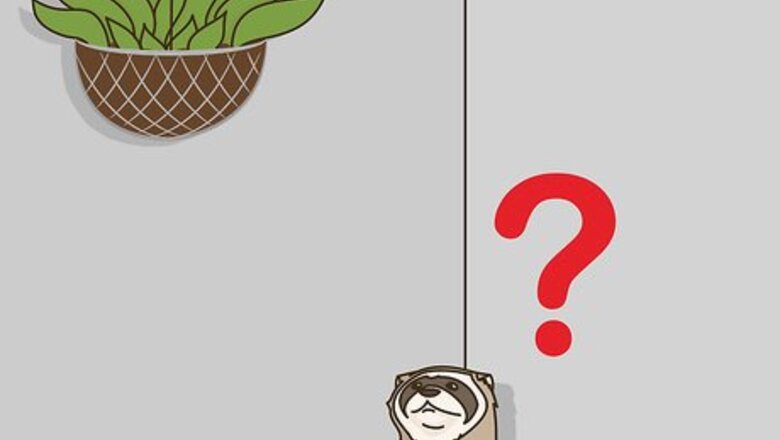
views
Keeping the Ferrets and Plants Separate
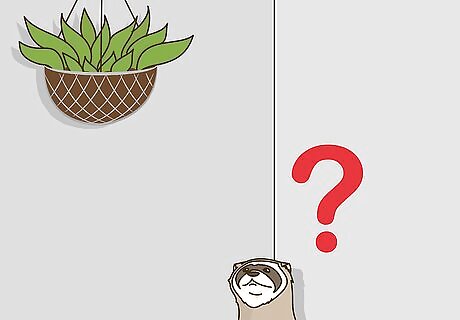
Hang up your houseplants. One way to keep ferrets out of your plants is to simply hang them from the ceiling or doorway. Though ferrets are mischievous, they won't be able to get to the houseplant to dig at it. Make sure you don't hang it close to anything a ferret can climb up.
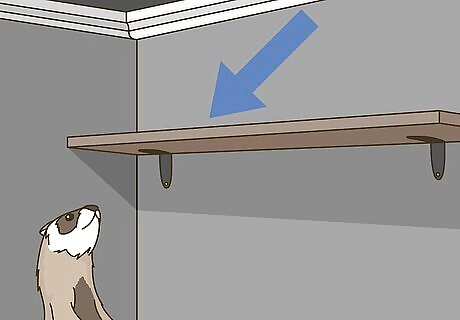
Place them on a high shelf. Another option is to just place them on a shelf that the ferrets can't reach. Keep in mind, though, that ferrets do like to climb, so try to make it a shelf that's not easily accessible by climbing. A mounted wall shelf is best, as your ferret may be able to climb up a bookcase.
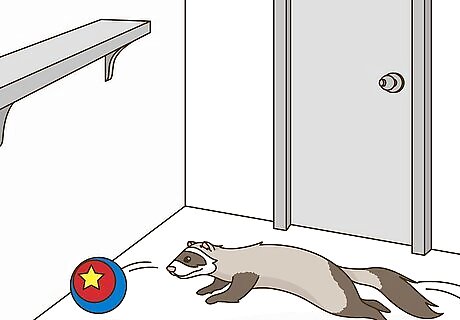
Make a plant-free ferret room. If you love having plants around, then try creating a room just for your ferrets that is free from plants. That way, you won't have dug-up plants, and your ferrets won't be exposed to plants that are toxic to them.
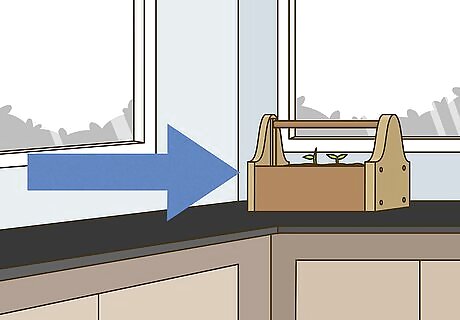
Keep your plants in their own room. You can also do the opposite and give your plants a single room. Close the room off so your ferrets have no access to it. If they can't get to the plants, they can't dig in the soil. Try picking a room with plenty of sunlight. It can even help the plants. When they're grouped together, they can feed on the humidity put out by the other plants. You can treat the room as a mini-greenhouse by opening blinds and curtains to let in the sun.
Covering the Soil to Keep Ferrets from Digging
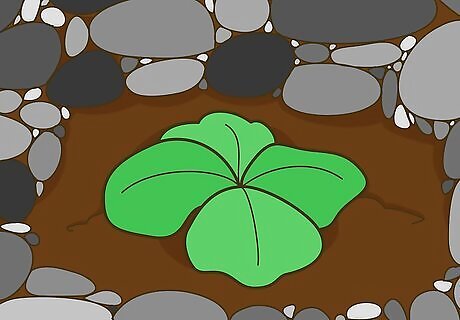
Place rocks on the soil for a natural solution. To keep ferrets from digging, you just need to keep them out of the soil. Decorative rocks on top of the soil can serve this purpose. Just make sure to completely cover the soil so your ferret can't get to it. Rocks can also be used to weigh down the plant. This will prevent a ferret from tipping the plant over and digging in the dirt underneath it.
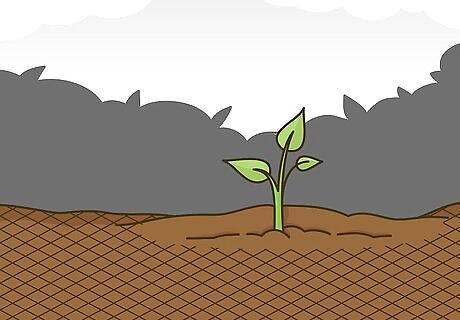
Use a wire mesh for an effective cover. Another option to keep your ferrets from digging in the plants is to place a fine wire mesh on top of the dirt. The mesh will keep the ferret from getting in the dirt, which means your plant will stay intact. Try using diamond mesh, which you can buy at your local hardware store. You'll need to cut it to fit the interior diameter of your pot. Make sure the mesh is tight-fitting so that your ferret can't chew at the edge. To prevent the ferret from pulling it out, you can glue it in or push it deep down the sides of the plant.
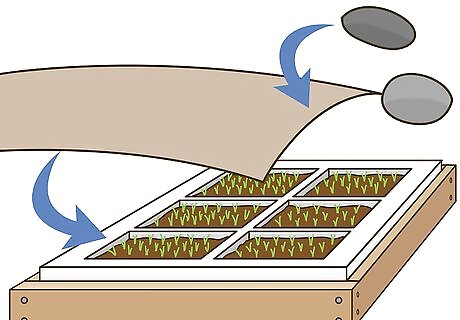
Make an economical cover with cardboard. An economical way to keep your ferrets out of your plants is cut out a piece of cardboard to fit over the soil. Of course, you'll need to move the cardboard to water the plant, but it will keep the ferret from digging. You'll likely need to replace this cover from time to time. Your ferret may chew at the cardboard, which is one reason it may need to be replaced from time to time. However, you can make it as tight-fighting as possible to deter your ferret. You can also try putting a rock on part of the cardboard to weigh it down.
Keeping Ferrets Safe from Plants
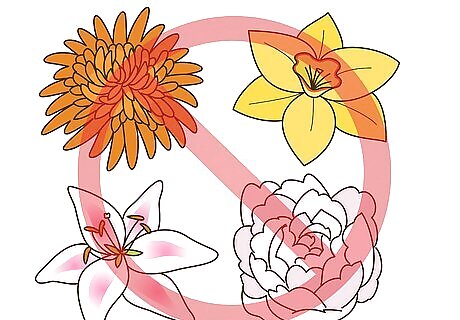
Skip toxic houseplants. Some plants are toxic to ferrets. If they chew on them, they can get ill or even die. Houseplants toxic to ferrets include poinsettias, aloe vera, milkweed, morning glory, carnations, yew, rhododendrons, tomato plants, baby's breath, chrysanthemums, and daffodils. If you have these plants in your home, keep them in a separate room or take them outside. Also, check flower arrangements for toxic plants, as many flowers can be detrimental to a ferret's health. You can throw out the arrangement or place it far out of reach of your ferret. Keep in mind, though, that falling leaves and flowers can be eaten by your ferret. Talk with your family and friends, as well, so they don't give you these plants or bring them in your house.
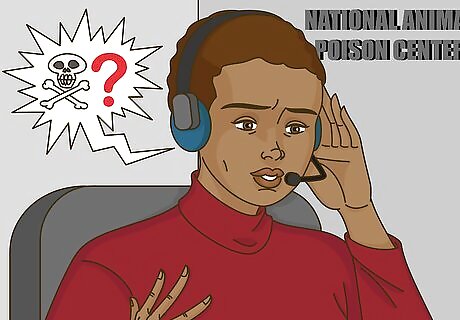
Talk to veterinary poison control. If your ferret has eaten a plant and you're not sure if it's toxic, call veterinary poison control for advice. Though it costs a little bit, they can recommend what to do for your ferret. One option is the National Animal Poison Control Center at the University of Illinois. The numbers are 1-800-548-2423 (for a flat $30 USD fee) or 1-900-680-0000 ($20.00 USD for 5 minutes, $2.95 USD/minute after that). You can also try the ASPCA's poison hotline at (888) 426-4435, which also charges a fee ($65 USD).
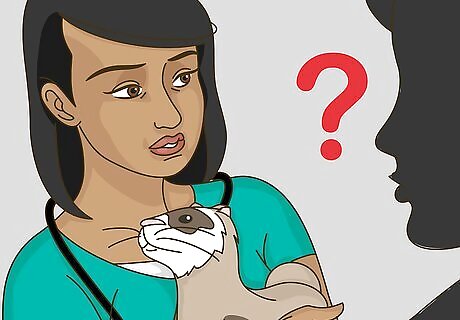
Make an emergency visit to the vet. If you know or suspect your ferret has ingested a toxic plant, it's time to head to the vet. If it's during the day, your regular vet may be able to help, but you should call first. If it's at night, you'll need to visit an emergency vet. Any sign of gastrointestinal distress can indicate your ferret has been poisoned, including vomiting and diarrhea, as well as the presence of blood in either the vomit or the feces. Also, if you see chewed leaves or dug-up dirt, you should call the vet. Tell the vet that you think your ferret has eaten something toxic and describe the plant.










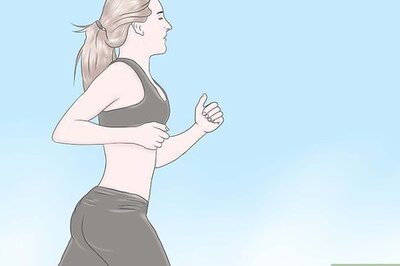
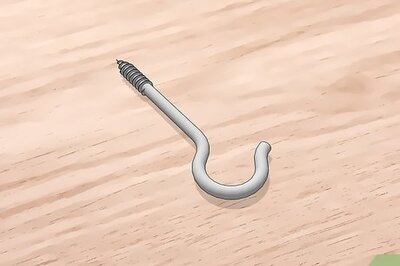








Comments
0 comment